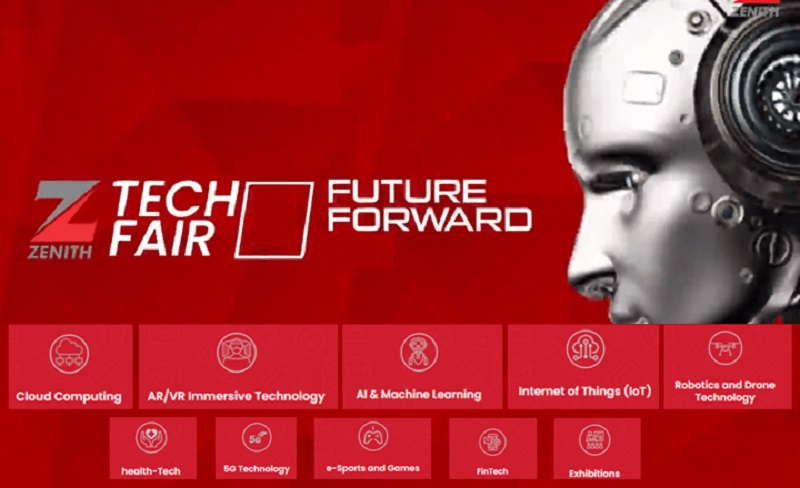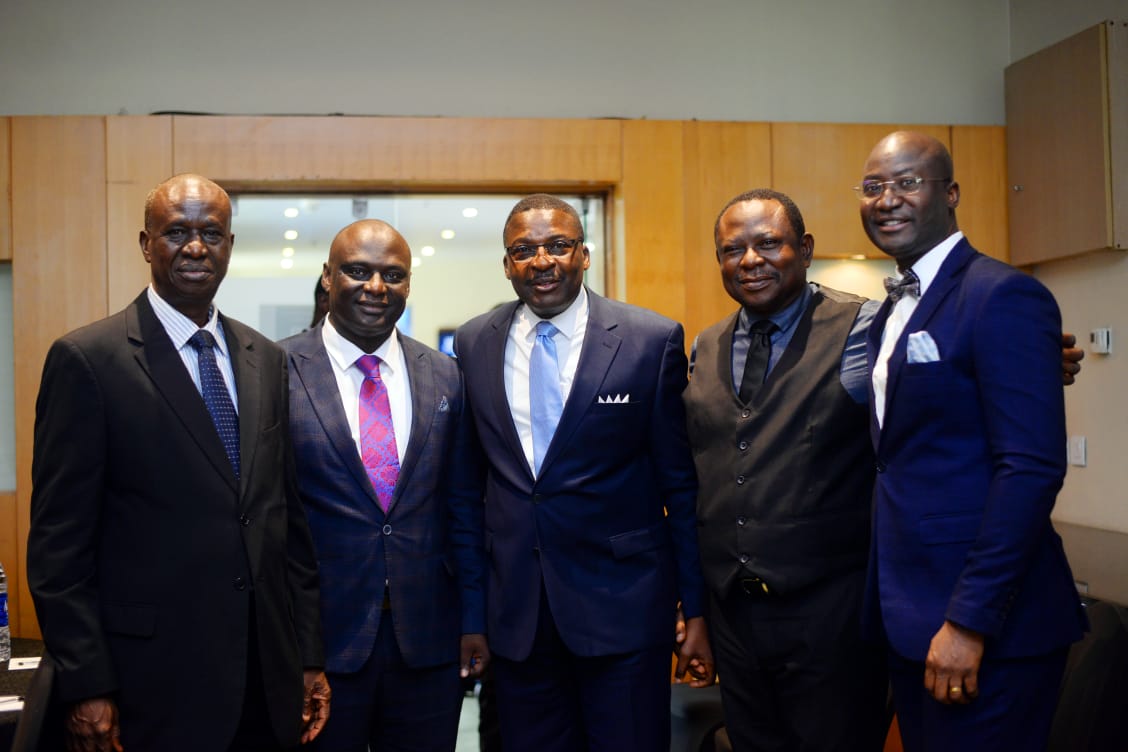Technology
Cybersecurity, the New Normal

A total of $706,452 has been paid in ransom to cybercriminals by Nigerian businesses. According to Sophos in The State of Ransomware 2022 report, Industrial Control Safety Systems (ICSS) in Critical infrastructure are increasingly exposed to cyber-attacks because of the digitization drive of the industry.
As supervisory control and data acquisition (SCADA) systems, distributed control systems (DCS), and other control systems become connected to the Internet to allow greater business efficiency (remote process monitoring, system maintenance, process control, and production data analysis)-Industry 4.0, they also make the business more vulnerable to threats with the potential to affect critical Industrial Control and Safety Systems seriously.
This article will discuss the cybersecurity challenges facing these industries and the steps that can be taken to mitigate these risks.
Critical infrastructure is classified as the physical and IT/OT assets, networks, and services that, if disrupted or destroyed, would have a serious impact on the health/security/economic well-being of citizens and the efficient functioning of a country’s government.
The energy sector and manufacturing industries are critical to the global economy, and their security is of the utmost importance. The integration of operational technology (OT) and information technology (IT) – industry 4.0 – in these industries has also increased efficiency and productivity, but it has also increased the risk of cyber-attacks.
One of the main challenges facing these industries is the integration of OT and IT systems. OT systems, such as control systems, are used to control and monitor physical processes, while IT environments, i.e., the internet and cloud, are used to process and store data. The integration of these environments means that cyber-attacks on the Information Technology environment can now directly impact the physical processes controlled by Operational Technology systems.
The use of legacy (ICSS) in these industries is prevalent. Many Control & Safety Systems were developed before cyber security was a global concern and may not have the necessary security measures in place to prevent such attacks when the ICSS is compromised. In addition, the hardware and software in these legacy ICSS could have reached their End of Life (EOL), which makes them more vulnerable to cyber attackers
Some other factors have contributed to the growing vulnerability of industrial control systems, which include
• Insecure remote connections; Access links such as dial-up modems and wireless communications are used for remote diagnostics, maintenance, and examination of system status. If encryption or authentication mechanisms are not utilized, the integrity of the transmitted information is vulnerable
• Standardized technologies; Organizations are transitioning to standardized technologies, such as Microsoft’s Windows, to reduce costs and improve system scalability and performance. The result is unrestricted access to knowledge and tools to jeopardize the system and an increase in the number of systems vulnerable to attack.
• Availability of technical information—Public information about infrastructures and control systems is readily available to potential hackers and intruders. Design and maintenance documents and technical standards for a critical system can all be found on the internet, greatly jeopardizing overall security.
In addition to the challenges and vulnerabilities facing the industrial control system, Cyber threats and incidents are now a major operating and business risk for every digital enterprise. In the age of digitization, it is imperative to create and execute strategies that allow the business to monitor and mitigate cyber threats and risks supporting its financial objectives.
Traditional industry best practice recommends that the ICSS and operational business networks be physically segregated and employ dedicated networks which enhance security and prevent these attacks.
But to truly mitigate these risks and be IIOT-ready, organizations need to have a comprehensive cyber security program with the partnership of industry experts, which incorporates intrusion detection and prevention systems, firewalls, and secure remote access solutions in place, such as those offered by Schneider Electric; with a team of certified experts, delivering holistic cybersecurity programs to help maintain the system’s defences, with cybersecurity services such as vulnerability assessments, penetration testing, and incident response planning from an operations perspective, while integrating appropriate IT policies and requirements.
In conclusion, the integration of OT and IT systems in the energy sector and manufacturing industries has increased efficiency and productivity, but it has also increased the risk of cyberattacks. Organizations in these industries need to adopt a cyber security program and posture to maintain profitability to protect against cyber-attacks.
Technology
Telecom Operators to Issue 14-Day Notice Before SIM Disconnection

By Adedapo Adesanya
Telecommunications operators in Nigeria will now be required to give subscribers a minimum of 14 days’ notice before deactivating their SIM cards over inactivity or post-paid churn, following a fresh proposal by the Nigerian Communications Commission (NCC).
The proposal is contained in a consultation paper, signed by the Executive Vice Chairman and Chief Executive Officer of the NCC, Mr Aminu Maida, and titled Stakeholders Consultation Process for the Telecoms Identity Risks Management Platform, dated February 26, 2026, and published on the Commission’s website.
Under the proposed amendments to the Quality-of-Service (QoS) Business Rules, the Commission said operators must notify affected subscribers ahead of any planned churn.
“Prior to churning of a post-paid line, the Operator shall send a notification to the affected subscriber through an alternative line or an email on the pending churning of his line,” the document stated.
It added that “this notification shall be sent at least 14 days before the final date for the churn of the number.”
A similar provision was proposed for prepaid subscribers. According to the Commission, operators must equally notify prepaid customers via an alternative line or email at least 14 days before the final churn date.
Currently, under Section 2.3.1 of the QoS Business Rules, a subscriber’s line may be deactivated if it has not been used for six months for a revenue-generating event. If the inactivity persists for another six months, the subscriber risks losing the number entirely, except in cases of proven network-related faults.
The new proposal is part of a broader regulatory review tied to the rollout of the Telecoms Identity Risk Management System (TIRMS), a cross-sector platform designed to curb fraud linked to recycled, swapped and barred mobile numbers.
The NCC explained in the background section of the paper that TIRMS is a secure, regulatory-backed platform that helps prevent fraud stemming from churned, swapped, barred Mobile Station International Subscriber Directory Numbers in Nigeria.
It said this platform will provide a uniform approach for all sectors in relation to the integrity and utilisation of registered MSISDNs on the Nigerian Communications network.
In addition to the 14-day notice requirement, the Commission also proposed that operators must submit details of all churned numbers to TIRMS within seven days of completing the churn process, strengthening oversight and accountability in the system.
The consultation process, which the Commission said is in line with Section 58 of the Nigerian Communications Act 2003, will remain open for 21 days from the date of publication. Stakeholders are expected to submit their comments on or before March 20, 2026.
Technology
Silverbird Honours Interswitch’s Elegbe for Nigeria’s Digital Payments Revolution

By Modupe Gbadeyanka
The founder of Interswitch, Mr Mitchell Elegbe, has been honoured for pioneering Nigeria’s digital payments revolution.
At a ceremony in Lagos on Sunday, March 1, 2026, he was bestowed with the 2025 Silverbird Special Achievement Award for shaping Africa’s financial ecosystem.
The Silverbird Special Achievement Award recognises individuals whose innovation, vision, and sustained impact have left an indelible mark on society.
Mr Elegbe described the award as both humbling and symbolic of a broader journey, saying, “This honour represents far more than a personal milestone. It reflects the courage of a team that believed, long before it was fashionable, that Nigeria and Africa could build world-class financial infrastructure.”
“When we started Interswitch, we were driven by a simple but powerful idea that technology could democratise access, unlock opportunity, and enable commerce at scale.
“This recognition by Silverbird strengthens our resolve to continue building systems that empower businesses, support governments, and expand inclusion across the continent,” he said when he received the accolade at the Silverbird Man of the Year Awards ceremony attended by several other dignitaries, whose leadership and contributions continue to shape national development and industry transformation.
In 2002, Mr Elegbe established Interswitch after he was inspired by a bold conviction that technology could fundamentally redefine how value moves within and across economies.
Under his leadership, the company has evolved into one of Africa’s foremost integrated payments and digital commerce companies, powering financial transactions for governments, banks, businesses, and millions of consumers.
Today, much of Nigeria’s electronic payments ecosystem traces its foundational architecture to the systems and rails established under his leadership.
“Mitchell’s journey is inseparable from Nigeria’s digital payments evolution. His foresight and resilience helped establish foundational infrastructure at a time when the ecosystem was still nascent.
“This recognition affirms not only his personal legacy, but the broader impact of Interswitch in enabling commerce and strengthening financial systems across Africa,” the Executive Vice President and Group Marketing and Communications for Interswitch, Ms Cherry Eromosele, commented.
Technology
SERAP Seeks FCCPC Probe into Big Tech’s Impact on Nigeria’s Digital Economy

By Adedapo Adesanya
The Socio-Economic Rights and Accountability Project (SERAP) has called on the Federal Competition and Consumer Protection Commission (FCCPC) to urgently investigate major global technology companies over alleged abuses affecting Nigeria’s digital economy, media freedom, privacy rights and democratic integrity.
In a complaint addressed to the chief executive of FCCPC, Mr Tunji Bello, the group accused Google, Meta (Facebook), Apple, Microsoft (Bing), X, TikTok, Amazon and YouTube of deploying opaque algorithms and leveraging market dominance in ways that allegedly undermine Nigerian media organisations, businesses, and citizens’ rights.
The complaint, signed by SERAP Deputy Director, Mr Kolawole Oluwadare, urged the commission to take measures necessary to urgently prevent further unfair market practices, algorithmic influence, consumer harm and abuses of media freedom, freedom of expression, privacy, and access to information.”
SERAP also asked the FCCPC to convene a public hearing to investigate allegations of algorithmic discrimination, data exploitation, revenue diversion, and anti-competitive conduct involving the tech giants.
According to the organisation, dominant digital platforms now act as private gatekeepers of Nigeria’s information and business ecosystem, wielding enormous influence over public discourse and market competition without sufficient transparency or regulatory oversight.
“Millions of Nigerians rely on these platforms for news, information and business opportunities,” SERAP stated, warning that opaque algorithms and offshore revenue extraction models pose both economic and human rights concerns.
The group argued that the alleged practices threaten media plurality, consumer protection, privacy rights, and the integrity of Nigeria’s forthcoming elections.
SERAP pointed to actions taken by the South African Competition Commission, which investigated Google over alleged bias against local media content, adding that the South African probe reportedly resulted in measures including algorithmic transparency requirements, compliance monitoring and financial remedies.
SERAP urged the FCCPC to take similar steps to safeguard Nigerian media and businesses.
The organisation maintained that if established, the allegations could amount to violations of Sections 17 and 18 of the Federal Competition and Consumer Protection Act (FCCPA), which prohibit abuse of market dominance and anti-competitive conduct.
SERAP stressed that the FCCPC has statutory authority to investigate and sanction conduct that substantially prevents, restricts or distorts competition in Nigeria.
It also warned that failure by the Commission to act promptly could prompt the organisation to pursue legal action to compel regulatory intervention.
Citing concerns reportedly raised by the Nigerian Press Organisation (NPO), SERAP said big tech companies have fundamentally altered Nigeria’s information environment, creating what it described as a structural imbalance of power that threatens the sustainability of professional journalism.
Among the allegations listed are: Algorithms controlled outside Nigeria determining content visibility, monetisation of Nigerian news content without proportionate reinvestment, offshore extraction of advertising revenues, limited discoverability of Nigerian websites and platforms, and lack of transparency in ranking and recommendation systems.
SERAP argued that declining revenues in the Nigerian media industry have led to shrinking newsrooms, closure of bureaus, and the emergence of news deserts, weakening journalism’s constitutional role in democratic accountability.
The organisation further warned that algorithmic opacity and data-driven micro-targeting could influence voter exposure to information ahead of Nigeria’s forthcoming elections, raising concerns about electoral fairness and transparency.
-

 Feature/OPED6 years ago
Feature/OPED6 years agoDavos was Different this year
-
Travel/Tourism10 years ago
Lagos Seals Western Lodge Hotel In Ikorodu
-

 Showbiz3 years ago
Showbiz3 years agoEstranged Lover Releases Videos of Empress Njamah Bathing
-

 Banking8 years ago
Banking8 years agoSort Codes of GTBank Branches in Nigeria
-

 Economy3 years ago
Economy3 years agoSubsidy Removal: CNG at N130 Per Litre Cheaper Than Petrol—IPMAN
-

 Banking3 years ago
Banking3 years agoSort Codes of UBA Branches in Nigeria
-

 Banking3 years ago
Banking3 years agoFirst Bank Announces Planned Downtime
-

 Sports3 years ago
Sports3 years agoHighest Paid Nigerian Footballer – How Much Do Nigerian Footballers Earn



















